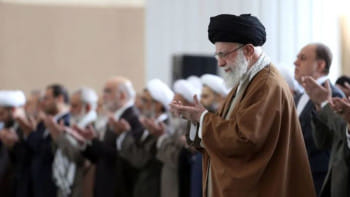Old city, new perspective?
Time seems to have a transformative impact on a person's perception of the surrounding environment. Since my stay in Dhaka this time has stretched longer than usual, I have begun to observe aspects of the City's social and economic activities that I never noticed before. For instance, beneath the chaos and cacophony that dominate Dhaka life, I can discern some positive changes that are being gradually accommodated by a mega city virtually bursting at the seams. Dhaka may be unliveable on a day to day basis, but it has an enormous supply of ingenuity and imagination, which explains its vibrancy.
Since my 'new arrival' status has changed to 'part time resident', social interactions have fallen into a routine, slower pace. This has allowed me to take leisurely strolls, spend time with grandkids and pursue my hobbies of singing and travelling. It has also provided the opportunity to observe more intently the city and its people, not as a casual visitor, but as someone who has seen its transformation over the years. I have begun to connect the dots and understand the underlying causes behind many behavioural deviations.
It's interesting how with a slight shift in perspective I discovered another Dhaka beyond the shopping arcades, neon signs, oversized cars, luxury apartments and cultural vibrancy. The most interesting facet of this "other Dhaka" is the new social strata– people who are resolutely moving up the economic ladder. Primarily entrepreneurs, they have seized the emerging opportunities of a vibrant economy. They may not be large garment factory owners, but they have taken advantage of the gaps in the production or supply chain and are providing the linkages. These people are highly visible since they throng public places like shopping malls, restaurants and movie theatres. The social snobs call them the "nouveau riche" but they are the ones who have pushed up the consumption curve. For they have not yet discovered the magic of weekend holidays and shopping sprees in Bangkok/Singapore! They are making things happen right here in Dhaka. The transformation is imperceptible to the eye of a casual observer but there are subtle changes that indicate that Dhaka life has become more organic with this new cohort of people taking control of the city's economic and social activities.
I was hit by this fact on my recent visit to the Basundhara Mall where I took my grandkids to watch "Cinderella". I had thought that fairy tales were too passé for the consumer-oriented new generation of children obsessed with video games and Super Heroes. To my surprise the movie was sold out for all three shows. The trip also exposed me to a whole new breed of consumption savvy Bangladeshis. They were an assorted lot -- from youngsters in jeans and T-shirts taking selfies to Hijab clad young women merrily accompanying their husbands into expensive jewellery stores. It was apparent that this mall trip was an outing for these upwardly mobile, urban young and inquisitive folks.
Inside the theatre I was amazed to see the bustling crowds. Relatively young parents had brought their kids for a treat. Although the show was frequently interrupted by youngsters in the audience asking all kinds of questions from "why Cinderella wore dirty clothes" to "how the pumpkin turned into a carriage," I was impressed that their parents had chosen "Cinderella" over "Avengers". As the story unfolded, I was once again moved by the simple fairy tale message of "have courage and be kind"-- emphasising the human potential to endure in adverse situations, but never forgetting compassion.
Coming out we encountered the familiar pushing and shoving to get ahead and the same traffic chaos. But I was filled with a sense of bonhomie. The core message of "Cinderella" resonated in my mind. I realized that even if it influences the young people watching the movie at a miniscule level, it is a welcome deviation from the usual super hero stories where physical might and prowess are emphasised over the human qualities of love and compassion. The fact that so many parents had brought their children to watch this tale of human endurance made me conscious of the fact that Dhaka is going through a conversion in terms of social mores. This kind of change is the most mysterious of time's processes: the ripening of society. Ripening of fruits is less complicated than for humans. Because, for humans, ripening involves learning life's lessons through experiences that make you aware of moral standards and principles. There are tremendous benefits to this since it alchemises the human mind into a more mature state. And only when this happens, society can come to fruition.
Is this transformation really happening in Bangladesh? Or am I imagining things -- perhaps charmed by the magic of a fairy's wand?
The writer is a renowned Rabindra Sangeet exponent and a former employee of the World Bank.
E-mail: [email protected]

 For all latest news, follow The Daily Star's Google News channel.
For all latest news, follow The Daily Star's Google News channel. 



Comments